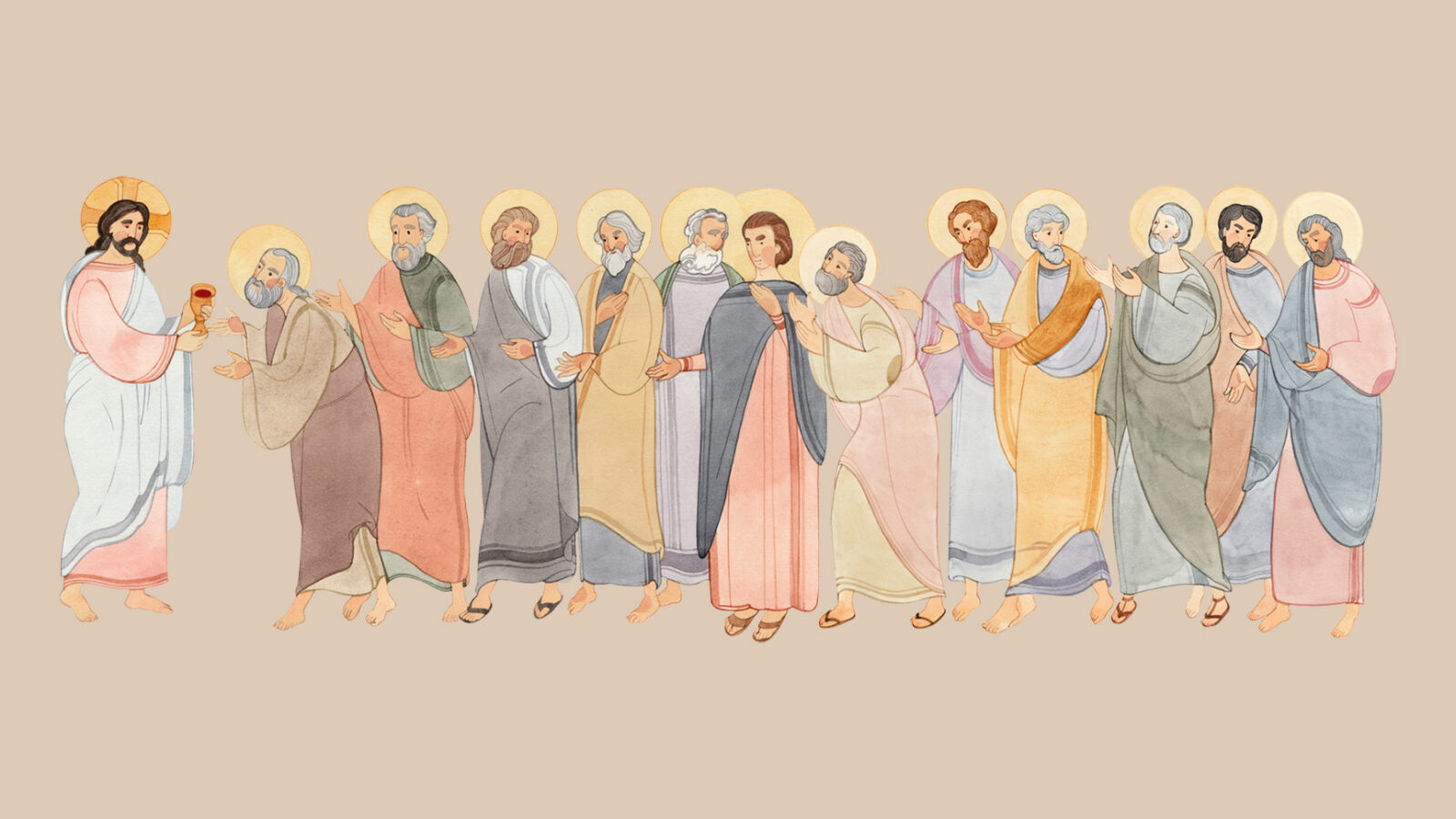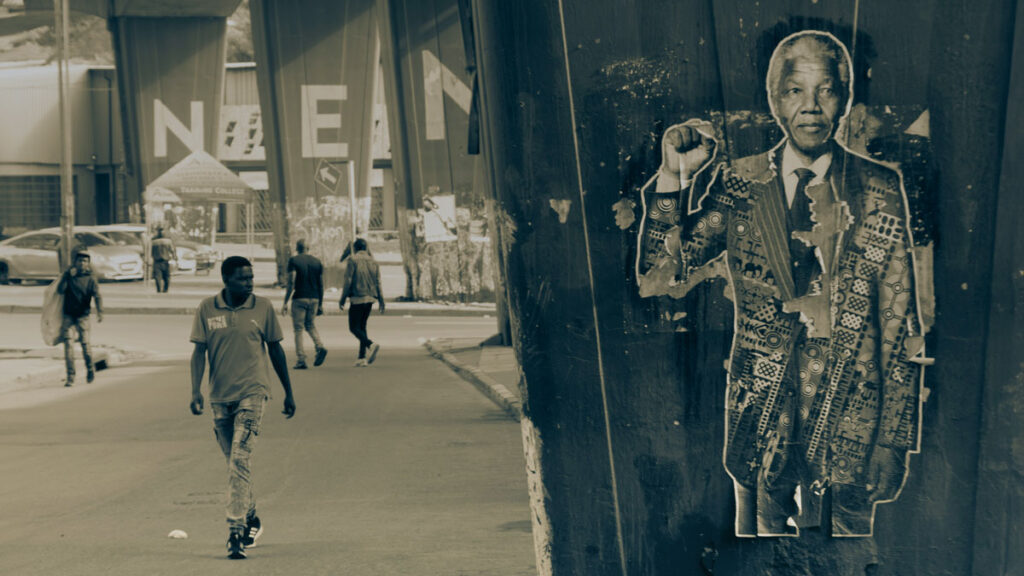The resurrected Christ led His disciples to the Mount of Olives, the same place where the Garden of Gethsemane was located. The place where the disciples scattered in fear at His betrayal would become the place where Christ would commission His disciples to reach the ends of the earth with a message of hope and salvation.
Christ’s instructions were clear: “And being assembled together with them, He commanded them not to depart from Jerusalem, but to wait for the Promise of the Father” (Acts 1:4, NKJV).
As Christ spoke His last words to the disciples, He ascended up to heaven. The next 10 days were crucial. It was the time gap between Jesus’ ascension and the outpouring of the Spirit. What happened on earth at this moment would decide the fate of countless lives for eternity.
The disciples entered Jerusalem, went into the upper room and closed the door.
When we think of the disciples entering the upper room, we don’t usually give it much thought, except for the fact that this is the place where the Holy Spirit came down in great power upon the praying disciples. But could it be that there’s a mystery to the upper room we have missed?
Interestingly, this is not the first mention of an “upper room” in the Bible. The upper room is spoken about even in Old Testament times. One of those times is actually in the book of Daniel.
King Darius signs a law that no-one can worship any other god except him. Daniel knows this is a conspiracy to take his life. But amazingly, as soon as the law is passed, the Bible tells us that the very first thing Daniel does is to go home and in his upper room open the windows wide, kneel down, pray and give thanks to God (Daniel 6:10).
I want you to notice something here:
-There’s a conspiracy to take Daniel’s life.
-Daniel is a man of integrity. Even the threat of death doesn’t stop him from worshipping and praying to God.
-Amazingly, even though prayer is what gets him thrown into the lions’ den, it’s his daily faithfulness and devotion to God in prayer in the upper room that actually proves to be the key to his deliverance from the lions’ den (Daniel 6:22).
The Bible is trying to tell us that the upper room was a place of prayer where God’s power could be called upon and poured out to bring deliverance in very real ways.1
We also see this in the story of Elijah and the widow’s son who dies. The Bible tells us that when Elijah hears the news, he carries the boy in his arms to the upper room where he is staying and cries out to God for the boy to live again. We are told the boy comes back to life, and Elijah, taking the boy to his mother, says, “See, your son lives!” (1 Kings 17:19,21,22).
In Daniel’s story, prayer in the upper room prepares him for death while in Elijah’s story, prayer in the upper room resurrects a dead boy to life. Here’s the key point: death and resurrection are both connected to the upper room. Both these stories together powerfully point us to the events leading to Jesus’ own death and resurrection:
-It begins with a conspiracy by the religious leaders to kill Jesus at Passover time.
-Jesus prays earnestly in the Garden of Gethsemane in preparation for His betrayal by Judas and crucifixion by the Romans.
-Though Jesus is crucified and “cast” into the tomb like Daniel was, His total surrender to God actually proves to be the key to His resurrection!
-Just like Daniel and Elijah, Jesus is a Man of integrity and innocence. He has done no wrong to God or man.
– It’s this power behind Christ’s life and resurrection that unleashes the outpouring of the Holy Spirit on the waiting disciples at Pentecost.
Amazingly, both the Passover festival, during which the religious leaders plot to kill Jesus, and Pentecost, which celebrates the outpouring of the Spirit through Christ’s resurrection, take place with the disciples in an upper room. In between these two crucial events we find Jesus constantly in prayer from the Garden of Gethsemane to the Cross of Calvary where Jesus breathes His last!
Let’s go to the Passover first. Jesus, knowing that Judas would betray Him, does not reveal the location of the last supper to His disciples. Instead, He sends two disciples on before Him to look for a man carrying a water jar. Jesus says,
“And he will show you a large upper room furnished and prepared: there make ready for us” (Mark 14:15, NKJV).
It was in the upper room that Jesus humbled Himself by washing the disciples’ feet and partook in the bread and wine. Jesus showed how He would die for them and how they also were to die to self and be perfectly united together in love, leaving all differences aside to serve one another (1 John 3:16).
When Jesus is finally betrayed by Judas and taken to be crucified, the disciples’ hopes for self-protection and self-preservation are dashed. While Jesus is a Man of great faith and prayer, the disciples on the other hand are lacking in faith and constantly in fear for themselves and their personal ambitions.
After Jesus’ death we find the disciples running away to the upper room not to pray and not to depend upon God—they meet in the upper room to hide so that unlike Jesus they don’t end up on the cross as well!2
Instead of the upper room being a place of power it becomes a place of despair and doom. The disciples refuse to believe the news from Mary Magdalene and the two disciples Jesus meets on the road to Emmaus that Jesus is alive (Mark 16:11-13). When Jesus appears to the disciples He rebukes their unbelief and hardness of heart.3
The disciples were not the people fit to turn the world upside down. They were just common, ordinary people like you and I who struggled with doubt, fear and unbelief. But what happens in the next 40 days that Jesus spends with them after His resurrection is transformative. The disciples’ eyes are opened to the work before them. Recognising the gravity of the moment they follow Christ’s instructions to wait for the promise of the Holy Spirit:
“Then they returned to Jerusalem from the mount called Olivet, which is near Jerusalem . . . And when they had entered, they went up into the upper room where they were staying. These all continued with one accord in prayer and supplication, with the women and Mary the mother of Jesus, and with His brothers” (Acts 1:12-14).
In these 10 days the disciples are humbled. They are united. Self is finally crucified. They are now ready vessels for God to move in a powerful way.
What happens next is history. The upper room once again reclaims its true purpose where unceasing prayer leads to the unleashing of God’s power through His Holy Spirit (Acts 2:1-4). The upper room becomes a symbol of death to self and a resurrection to new life. This explosive combination causes the disciples to step out recharged and ready to change the world for Christ!
The link is clear. Daniel, Elijah, Jesus were dynamic men who transformed the world in which they lived. But the disciples were faulty and weak human beings. They were not the kind of people we would put alongside such committed and faithful men. Yet the Bible shows how God can take the most broken people and lift them to new heights when their hearts are surrendered to Him.
Today, we live in momentous times. We are the disciples of a new, modern era. It’s time we took that call seriously and re-entered the upper room of prayer to step out and transform this fragile world for Christ. It’s up to us. Will we enter the upper room?
Vikram Panchal is a church planting pastor in Melbourne, Victoria, and creator of “Lead Your Life” podcast that empowers listeners to live their highest potential for God.
1. <stmark.com.au/Blogs/the-significance-of-the-upper-room-to-the-early-church/>; <heartofworshipchurch.wordpress.com/2016/11/21/do-you-have-an-upper-room/>.
2. White, Ellen, The Acts of the Apostles. Pacific Press, Mountain View, California, 1911, p26.
3. Roennfeldt, Peter, Following the Apostles’ Vision. Signs Publishing, Warburton, Victoria, 2019, p9,10.






